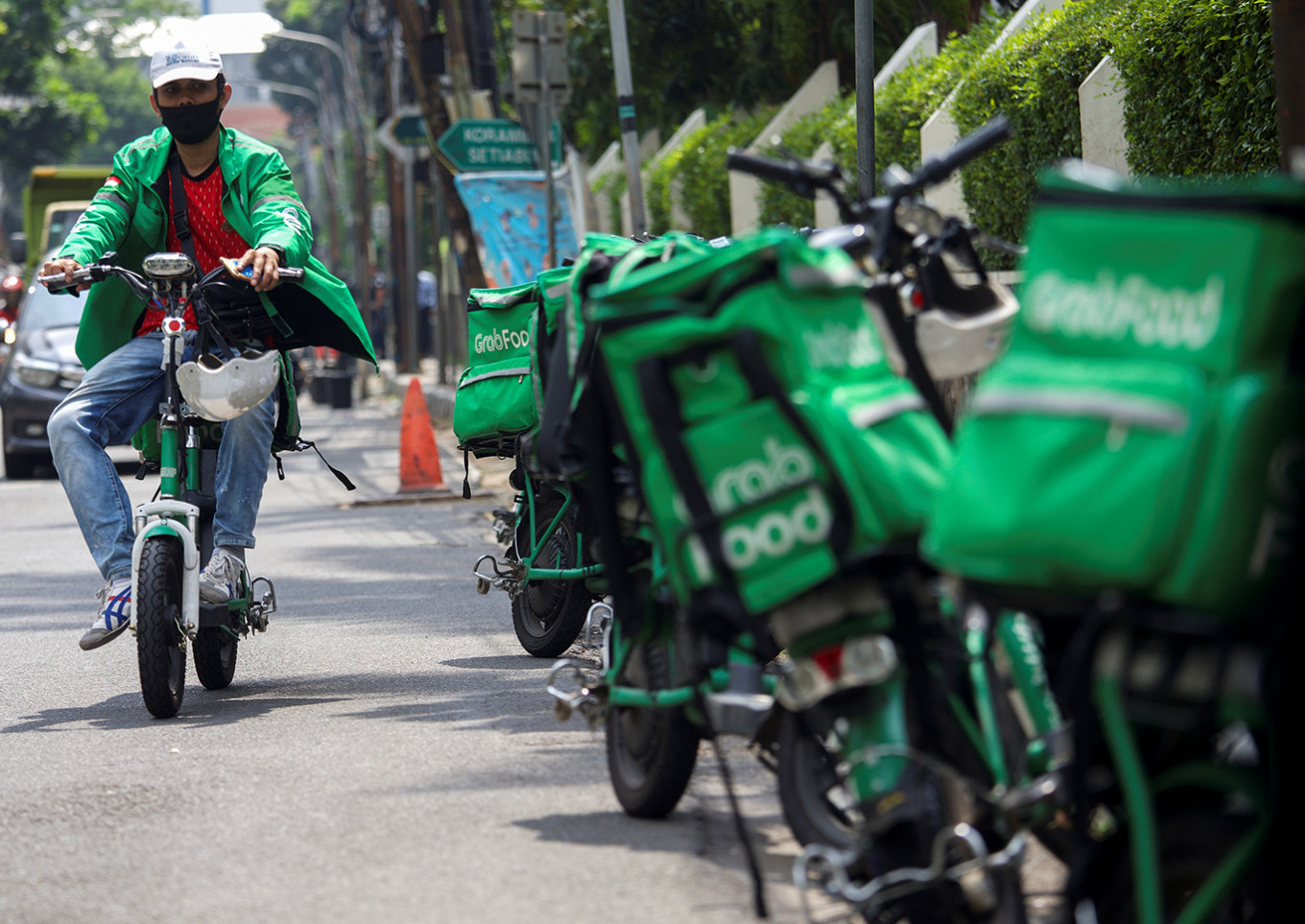Popular Reads
Top Results
Can't find what you're looking for?
View all search resultsPopular Reads
Top Results
Can't find what you're looking for?
View all search resultsIndonesia food delivery industry grows 24 percent
Grab accounts for a large chunk of gross merchandize value (GMV) in the biggest food delivery market in Southeast Asia.
Change text size
Gift Premium Articles
to Anyone
I
ndonesia’s market for food delivery services – the biggest in Southeast Asia – grew by 24.3 percent last year, according to a new report by venture capital firm Momentum Works.
The country’s gross merchandise value (GMV) in the food delivery market rose to US$4.6 billion last year from $3.7 billion in 2020. Thailand and Singapore followed with $4 billion and $2.9 billion, respectively.
“COVID-19 social restrictions imposed in the second and third quarter last year due to the Delta variant have boosted food delivery growth in Southeast Asia,” Momentum Works CEO Jianggan Li said during a media briefing on Thursday.
Read also: Indonesia’s $3.7b food delivery market largest in region
Indonesia’s food delivery GMV accounted for 29.6 percent of the total of the six assessed countries: Thailand, Singapore, Malaysia, the Philippines, Vietnam and Indonesia itself.
The total food delivery GMV of those countries grew 30 percent last year to $15.5 billion, a slowdown from the 183 percent increase seen in the year before.
“As players expand into new cities and services, and the restaurant industry becomes more digitally enabled, we anticipate continued growth of food delivery well into 2022,” Li said.
Grab Holdings’ GrabFood contributed close to half of Indonesia’s food delivery GMV, followed by Gojek’s GoFood at 43 percent and Shopee’s ShopeeFood at 8 percent.
Grab also leads in the region’s food delivery GMV at $7.6 billion. Meanwhile, Foodpanda, which is owned by Berlin-based Delivery Hero, and Indonesia’s Gojek followed at $3.4 billion and $2 billion, respectively.
Incumbent players like Grab and Gojek were looking to reach profitability on their food delivery front by reducing discount offerings, Li said.
“As a latecomer, ShopeeFood still uses aggressive promotion tactics to get market share. However, the strategy’s effectiveness remains to be seen this year,” he added.
Li went on to say that food delivery firms would continue to use subsidies and discounts to acquire new users in untapped markets, but he noted that companies would need to “sooner or later rationalize their business.”
Indonesia is home to four food delivery players, namely Grab, Gojek, Shopee and Traveloka. The latter two entered the market in 2020 amid high demand for food delivery during the COVID-19 pandemic.
Meanwhile, Malaysia’s Capital A, formerly known as AirAsia, is planning a super app offering in the region, including food delivery, ride-hailing, package delivery and other services. The company has run food deliveries in Malaysia and Singapore.
Read also: AirAsia eyes ride-hailing, delivery through super app
“Current food delivery conditions will last for a while,” Li said. “We think eventually two major platforms are optimal. I am not seeing that three major players will be able to coexist in the long run.”
Momentum Work’s COO Yorlin Ng said Southeast Asia’s food delivery scene was getting closer to a model found in the United States and China, where two to three major players dominate the market.










